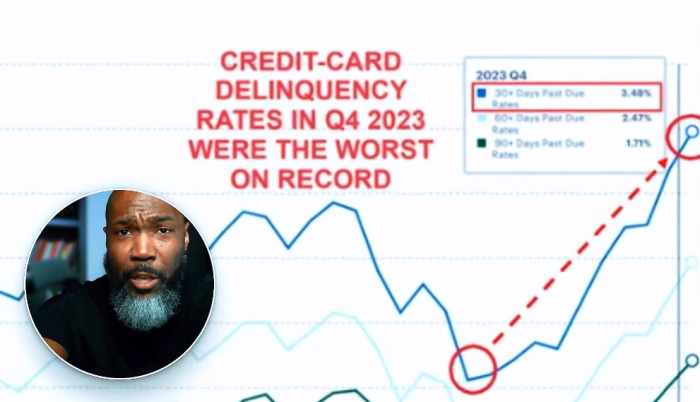In the midst of fluctuating economic tides, African-American households find themselves navigating through a turbulent sea of financial challenges. The confluence of increasing debt, both at an individual and governmental level, alongside rising interest rates, record credit card usage without the safety net of savings, and mounting unemployment fears, presents a precarious situation. This perfect financial storm is causing many to scrutinize the narrative peddled about the state of the American economy. Within this context, we delve into understanding the specific financial hurdles faced by African-American families, the ramifications of high credit card delinquency rates on the economy, and explore actionable solutions to combat increasing debt and foster financial stability.
Understanding the Financial Challenges Facing African-American Households
The financial landscape for many African-American households is fraught with challenges. A significant factor exacerbating these challenges is the increasing level of debt, which has soared to alarming levels in recent years. Record credit card usage, coupled with high interest rates and a diminishing safety net of savings, has pushed many families into precarious financial positions. The situation is further compounded by fears of unemployment, with a notable shift towards part-time jobs or the necessity of juggling multiple job roles. The housing market, often a reflection of broader economic health, shows signs of downturn, impacting African-American families disproportionately.
Impact of Credit Card Delinquency on the Economy
The soaring credit card delinquency rates in the U.S., with almost 3.5% of card balances being 30 days past due, spell trouble for the economy at large. A deep dive into these figures reveals a troubling trend of financial strain among American households. The impact is far-reaching; high delinquency rates thwart consumer spending, which is a driving force of the US economy. With credit card debt at a staggering $1.3 trillion and interest rates climbing, the domino effect on the national economy and individual financial health is undeniable. As consumer spending contracts, the ripple effects can lead to a larger economic downturn, impacting not just households but the entirety of the U.S. economic framework.
Exploring Solutions to Combat Increasing Debt and Financial Instability
The dire financial situation that African-American households, and by extension, the broader American populace face, necessitates innovative and practical solutions. Traditional approaches to managing debt and fostering economic resilience seem to fall short in the face of escalating debt levels and economic challenges. Cultivating financial literacy and embracing community-based financial education can empower individuals with the knowledge to navigate financial decisions more effectively. Additionally, advocating for policies that promote job creation, fair wages, and access to affordable housing can lay the groundwork for economic stability. On an individual level, prioritizing debt reduction, whether through strategic repayment plans or consolidation, alongside building an emergency savings fund, can provide a buffer against financial shocks. Moreover, reevaluating and possibly curbing credit card usage can help prevent the accumulation of high-interest debt, ensuring a more stable financial future.
In conclusion, the financial challenges facing African-American households are multifaceted and deeply intertwined with the broader economic issues facing the United States. By taking proactive steps towards managing debt, understanding the implications of credit practices, and advocating for supportive financial policies, there is a pathway to navigate these challenges. The journey towards economic stability and resilience is a collective endeavor, requiring the efforts of individuals, communities, and policymakers alike.
Must watch videos on the RTD Blog!!!
- The Price of Dysfunction: U.S. Shutdown & Global Backlash | James Turk Reveals All
- Cracks In The Banking System Could Have Been Avoided w/ Craig Alford
- Mega BRICS+ Bloc: The Ignored Summit That Could Change The World w/ Chris Devonshire-Ellis









0 Comments